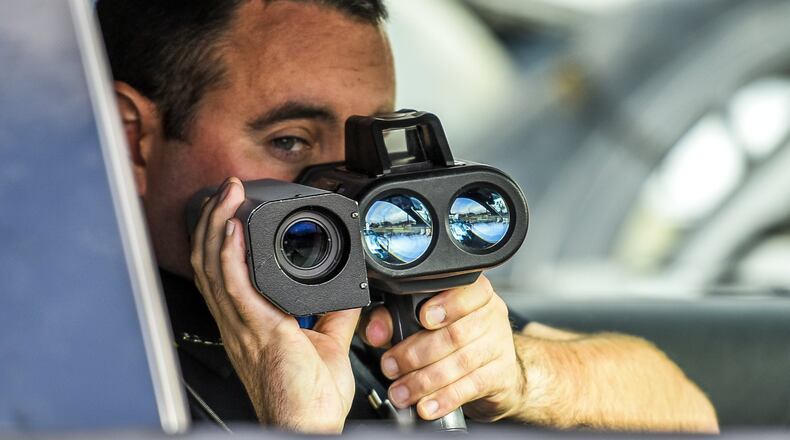The law took effect July 3, and Hamilton Municipal Court Clerk Michelle Deaton said the village has not filed any speed camera tickets.
She said the civil filing fee is $85, there could be other costs. The New Miami speeding tickets were $95. However, the village only keeps 64 percent of the fine collections, so for the 2,888 tickets paid this year through June — if the law had been in effect all that time — the village would have had to pay the court at least $245,480 and would have only collected $175,635.
RELATED: New Miami only jurisdiction impacted by new speed camera law
Deaton said she isn’t sure what other costs might be included.
“It would be an advanced deposit basically of $85 then we would have to assign a penalty to whatever they were charged under, I can’t even tell you because we haven’t had one yet,” Deaton said. “We just haven’t had one filed here yet so we haven’t practiced our process at this point.”
The Hamilton court is the only place New Miami could file the tickets — regular tickets are processed as traffic citations not civil cases in that court. Deaton said police usually turn in tickets within a couple days at most.
New Miami Mayor Bob Henley and Village Solicitor Dennis Adams did not respond to multiple calls for comment.
The state intends to also reduce local government funds it sends to jurisdictions with speed cameras by the amount the village collects from speeders. New Miami received $52,448 in local government funds from the state last year.
The law mandated speed camera jurisdictions send a revenue report to the Ohio Tax Commissioner by July 31. New Miami Fiscal Officer Belinda Ricketts sent a form stating the village collected civil fines totaling $347,970 from July 1, 2018 through June 30 of this year.
When the law was passed, Henley said he was unconcerned about the potential loss of local government funds.
“I don’t really understand it because they’ve cut the small governments so much in the last few years anyway,” Henley said. “They send us hardly any money at all anymore. So big deal.”
He didn’t address the court fee issue.
MORE: New Miami speeders appeal more than expected in $3.4M speed camera judgment
State Rep. Bill Seitz, one of the architects of the speed camera legislation, said he has heard that some smaller jurisdictions have stopped their programs while the issues return to the courts. The last time the legislature tried to interfere with local jurisdictions’ speed camera programs the Ohio Supreme Court said the law was unconstitutional.
The city of Dayton recently won a temporary restraining order against the state over the new law, but Seitz, who is also a lawyer, said he doesn’t believe the high court will find fault with these statutes. He said the last time officials tried to make the camera programs uniform statewide and the Supreme Court said that violated home rule. This time it is only about money.
“We’re not telling them how to run their programs, they can do whatever they want, they can put a camera on every corner if that’s what floats their boat,” Seitz told the Journal-News. “But we’re simply not going to subsidize you with state revenue if that’s how you choose to raise your revenue.”
About the Author
